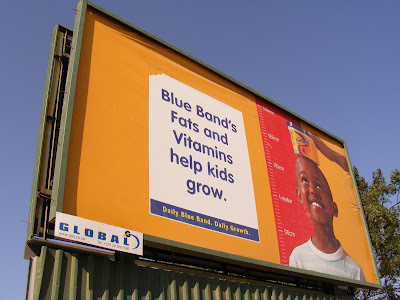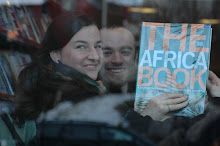Jack Bousfield, 1963
Luckily these days there is something out there. One of the most unique lodges in Africa in fact. Planet Baobab is a lodge and campsite designed in the style of a traditional Bakalanga village. It is situated just a few kilometres from Gweta on the Nata-Maun road in northern Botswana. Although it is just a few hundred metres from the main road it is completely hidden, and the advantage is that once you are there you too are completely hidden! The only way you can tell when to get off the bus or turn off the road is because of the presence of a whopping great pink aardvark on the side of the road!
On arrival the lodge reveals itself to be situated in, under and around 17 baobab trees which the stylish huts compliment with their authentic designs. The campsite is hidden at the back of the complex (perhaps the tents and 4x4's would ruin the look!) but is not neglected, campers enjoying the roofless shower blocks and shaded sites. The huge bar is like some temporary open-air aircraft hanger and is crammed full of retro photos of African life and other cool artifacts. The restaurant is quite expensive (but campers are free to self-cater) but offers a wide range of dishes from across the continent. They also offer tours onto the salt pans, which include wildlife safaris, quad bike expeditions, meerkat visits, local village tours and overnight bush camping trips. Uncharted Africa, who run Planet Baobab, also own the luxury Jacks Camp, San camp and the beautifully isloated Camp Kalahari, right in the middle of the pans.
All in all a visit is a unique experience and one of Africa's highlights in terms of accommodation options!
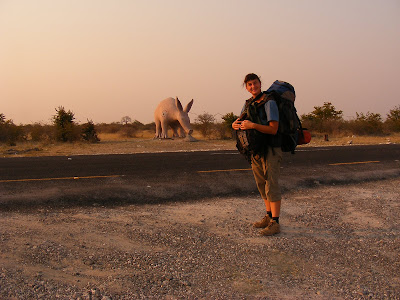
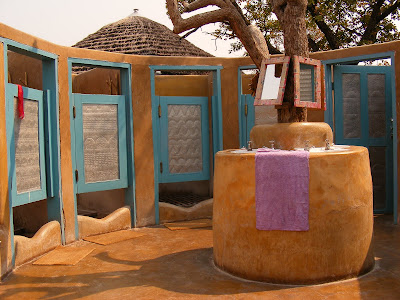
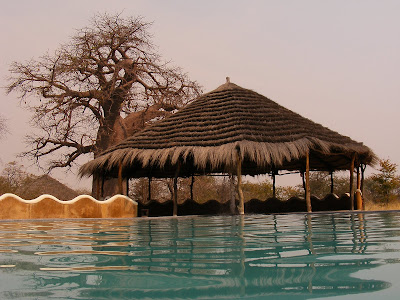



On arrival the lodge reveals itself to be situated in, under and around 17 baobab trees which the stylish huts compliment with their authentic designs. The campsite is hidden at the back of the complex (perhaps the tents and 4x4's would ruin the look!) but is not neglected, campers enjoying the roofless shower blocks and shaded sites. The huge bar is like some temporary open-air aircraft hanger and is crammed full of retro photos of African life and other cool artifacts. The restaurant is quite expensive (but campers are free to self-cater) but offers a wide range of dishes from across the continent. They also offer tours onto the salt pans, which include wildlife safaris, quad bike expeditions, meerkat visits, local village tours and overnight bush camping trips. Uncharted Africa, who run Planet Baobab, also own the luxury Jacks Camp, San camp and the beautifully isloated Camp Kalahari, right in the middle of the pans.
All in all a visit is a unique experience and one of Africa's highlights in terms of accommodation options!



